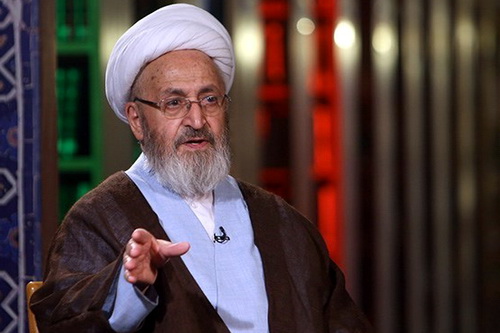Commentary on Qadar and Qada
Hawzah News Agency – The term qadar in the Arabic language means ‘measure’ and ‘portion’; and qadar pertains to that which is definite and decided.
The eighth Imam, Imam Rida, said by way of commentary upon these two terms: ‘Qadar is to be understood as the measuring out of a thing in relation to its subsistence (baqa) and its extinction (fana); and qada is the bestowal upon a given entity of its definitive capacity to actualize itself.’
Commentary on Qadar
Each creature, insofar as it is a contingent being (mumkin al-wujud) has a particular existential limit and extent. All things other than God exist in a particular way, are limited in differing degrees, take on different modes of existence: minerals have a particular existential measure or ‘cut’, differing from that of plants and animals. Just as the very existence that is apportioned to all things is itself a creature of God, likewise, the initial measuring out (taqdir) of all things comes from Him. Therefore, this measuring out of existence can be understood as an act of God: it is referred to as ‘active determination and apportioning in act’. This, in turn, is to be understood in the light of the following: Before creating a thing, God already knows it in its unmanifest state of latency or potentiality; this being referred to as ‘determination and apportioning in knowledge’.
Belief in qadar is tantamount to belief in the creatorship of God as regards the particular properties of all things, and His ‘active determination’ of things rests upon His pre-eternal knowledge; in consequence, belief in the divine knowledge of qadar is but a function of belief in the eternal knowledge of God.
Commentary on Qada
As mentioned above, qada is to be understood as the bestowal of definitive existence upon an entity. Naturally, the process by which this definitive existence is attained rests upon the operation of the law of cause and effect. A thing receives its existence as a result of the complete actualization of the cause of its existence.
Insofar as this law of causality derives ultimately from God, the reality of the definitive nature of each existing entity rests upon the power and will of God. There is an ‘active’ qada which operates at the level of creation, and an ‘essential’ qada which pertains to God’s eternal knowledge of all things such as they are before they come into being.
What has been said so far has been in relation to creative qada and qadar whether in essential or active mode. But both principles also apply to the realm of religious dispensation, in that the principle of religious obligation is also determined by divine qada; and the particular properties of these obligations—as regards what is necessary, forbidden, and so on—also derive from ‘religious pre-determination’ (taqdir tashrii). In reply to someone questioning the reality of qada and qadar, Imam Ali referred to this ontological level and said: ‘The meaning of qada and qadar pertains to commanding obedience and forbidding disobedience; the bestowing of power upon man to perform good works and renounce evil works; the provision of grace to increase nearness to God; delivering up the sinners to their own [inner] states; the making of promises and threats—all these relate to the qada and qadar of God in regard to our actions.’
We can see from this reply that the Imam restricted himself to speaking about qada and qadar in relation to religious dispensation, possibly on account of his awareness of the need for the questioner—and those present at the gathering—to cultivate the particular attitude and state of soul that the questioner lacked. For, at that time, the issue of existential predestination, and its implications as regards human action, was leading towards an absolute pre-determinism (jabr), and therewith the negation of free will (ikhtiyar). Evidence for our interpretation is given by the fact that the hadith continues as follows: ‘Do not speculate on anything other than this, for such speculation will nullify your actions.’ The
meaning here is that the value of man’s actions is predicated upon his free will; and a belief in the absolute pre-determinism of action annuls this freedom, and hence the value of human action.
To conclude: qada and qadar are applicable both to creation and to religious dispensation, and each of these two realms comprises two modes: an ‘essential’ mode, related to divine knowledge; and an ‘active’ mode, related to manifestation.
Reference:
Ayatollah Jafar Sobhani, Doctrines of Shii Islam, A Compendium of Imami Beliefs and Practices, Translated and Edited by Reza Shah-Kazemi, published by I.B.Tauris Publishers, London • New York 2003

